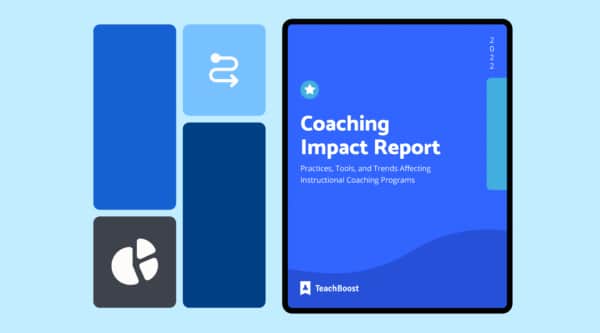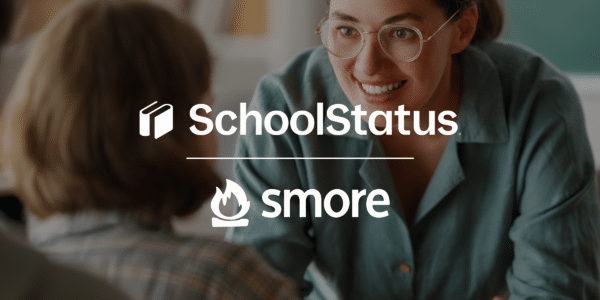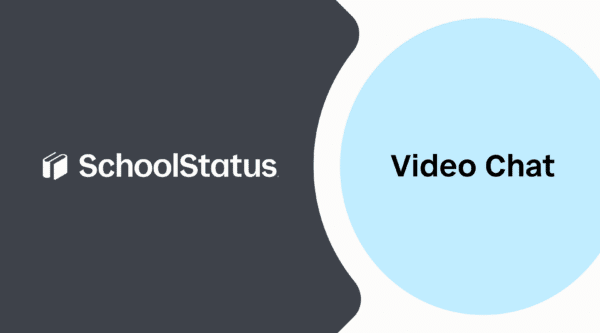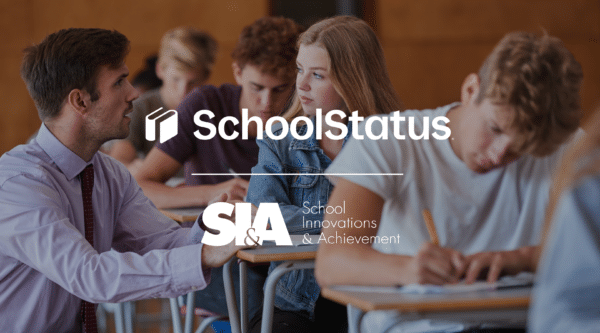
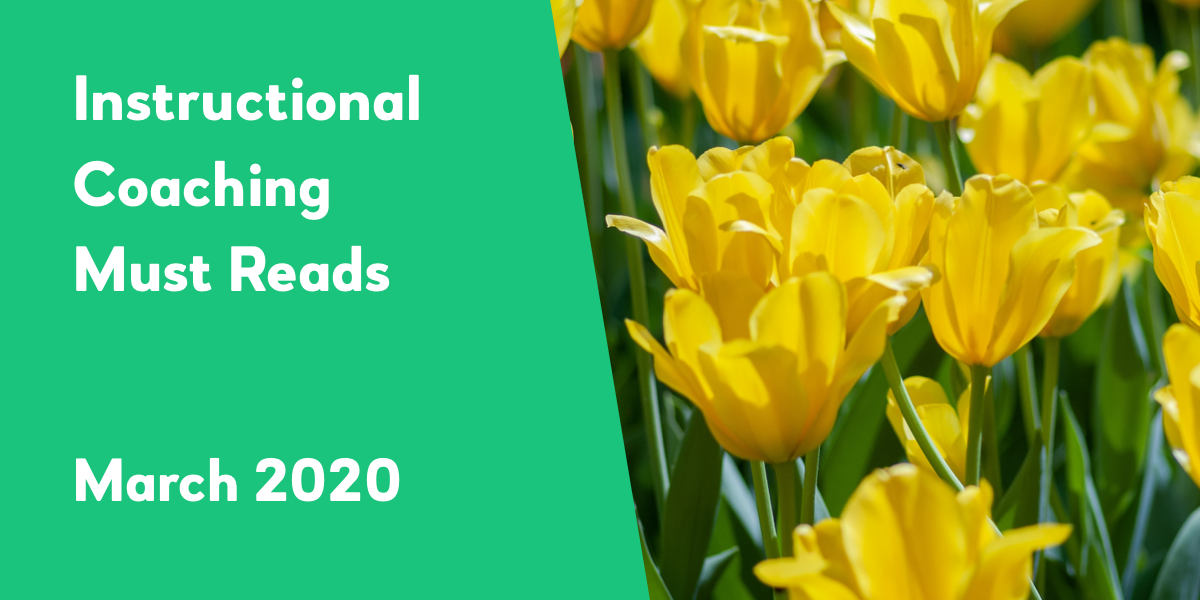

March undoubtedly brought a whirlwind of change into our lives, as well as a major and sudden shift in the way we teach and coach. We put some resources together to try to help you adjust to these realities in this Must Reads, and we’re going to continue to focus on dealing with change, distance learning and remote work, and how to continue your instructional coaching practice in new ways. Enjoy! ☘️
Tired of waiting until the end of the month to read your coaching news? Join our weekly coaching roundup to get these sent directly to your inbox every week!
{{cta(’91e39d53-f5a0-42e6-8226-06f568821405′,’justifycenter’)}}
3 Ways to Combat Coaching Loneliness
Coaching can be really tough at times, especially if you’re the only one in your building, new to the role, or working remotely. Check out our (very shareable) infographic to learn three quick fixes from your peer, Fiona Hurtado. Bonus points for printing it out and hanging it up!
”
Coaches are still somewhat of a rare species in the educational landscape, however, and despite our teaching heritage we’ve evolved into something that is often difficult to describe to others and, at times, even to ourselves. Although there are advantages of being a coach,
it can actually feel pretty lonely at times, but it doesn’t have to be.”
Coaching for Community: 4 Tips for Coaching in Unprecedented Times
Stephanie Affinito offers four ways coaches can support teachers during their transition to a new reality: working remote.
“Classroom teachers are working tirelessly to ensure everyone stays connected and that their students continue to learn amid COVID-19 school closures. They’re gathering resources, connecting with students and other educators online, and rethinking what learning looks like in times of crisis. . . .
During these times, coaches need to reach out to teachers to ensure they’re still heard and seen.”
How Coaches Can Deal with Change
Geoff Knight talks about an interview with Dr. Kim Richardson about a coaching inevitable, change, and how being adaptive an an IC is key in overcoming it.
“One thing we have learned is that in order for a partnership to be successful,
a coach needs to position the teacher as the decision-maker. . . . Sometimes a coach must learn to be comfortable with a shift in the school environment or district. One major adjustment coaches could face is the shift from a more hierarchical administrative environment to an environment that thrives on partnership. For example, if a coach has previously been an administrator in a school or district, that coach has to address the change in the type of leadership that is needed in coaching.”
Strategies for Shaking Up Your Professional Learning
Are you and your teachers tired of the same old “sit-and-get” professional learning initiatives? Amy Storer offers a few fun alternative options for your future professional learning session.
”
One of the first things I learned as an instructional coach is that my work isn’t about me. It isn’t about my favorite tools or my favorite strategies. What it is about is teacher learning and growth. . . . So, before you begin to design your next professional learning for your staff, ask them what they want to learn more about. After all, it is their learning, not ours, and adding a little fun to the mix never hurt anyone!”
Manage your coaching cycles online! |
|
TeachBoost Coach helps you manage your coaching cycles, goals, meetings, and evidence online. It works on any device, making it easy to take pictures and videos in the classroom directly connected to your coaching cycles. We’re looking for instructional coaches to pilot the tool and provide feedback! {{cta(‘997af1e4-1e4d-4d17-8c80-43a15a5af702’)}} |
Random Acts of Coaching
Stephanie Affinito shares a few ideas for creating a positive culture of learning in your building.
“As I thought about how these random acts of kindness with no expectation in return can make such a difference in our daily lives, I wondered how the same could be brought to our work as literacy coaches and leaders. . . .
Your email signature can be a powerful coaching tool. Link to the books you are currently reading, add a powerful quote to ponder or even share a new resource each week. Teachers will come to expect these nuggets and even look for them.”
The Reality of Remote Learning
Christine Weis emphasizes the importance of staying connected with students during social distancing and provides free resources—daily schedules, learning websites, and more—for when remote learning is not a support reality.
“Teachers (like parents) have both personal and professional responsibilities to consider, like child care, teaching from home, taking care of elderly relatives, having enough of what they need for their families over the next few weeks as we socially distance ourselves from large crowds in school and in our community. . . .
If we cannot provide in-class instruction for our students and remote learning is not the reality, then there are certainly other ways we can stay connected with our students and suggest some ideas and free resources that they can utilize.”
Approaches to Difficult Conversations
Steve Barkley overviews three different roles coaches can play when working with teachers and why it’s important to set expectations for each one.
”
Many administrators and teacher leaders have different roles at different times. How does a teacher know which role the observer is in at any given time? . . . An instructional coach (IC) can function as a ‘peer coach,’ responding to a request from the teacher for observation and feedback. On another occasion the IC is more in the role of a mentor or technical coach providing feedback the teacher may not have ‘requested’ on district data or technical feedback related to a building wide professional development effort. In some cases, the IC can have a role very close to supervision.”
Level Up as a Coach
Elena Aguilar overviews her 5-step “POWER” framework that helps her plan, observe, and reflect with teachers, rather than just provide solutions for them.
“As a classroom teacher, I know full well that during the class period, the teacher shouldn’t be working harder than the students. And in coaching, I operate with the same ethos: I need teachers to be arbiters of their own learning. For both contexts,
the power comes in the planning, the moves we make to observe ourselves and step back and let the learners learn, the reflection we do at the end so we can prepare for the next session. And I’m a framework person.”
Bonus Articles on E-Learning
We know many schools and districts around the country are working extremely hard to continue services for their students in new ways. Check out our latest Weekly Coaching Roundup Topic for some best practices and tips for distance learning, along with reflections from your peers on their experiences so far.
{{cta(’34b13594-505a-497a-8a75-16ae35acf14d’)}}
Have some interesting instructional leadership news?
Share it with TeachBoost and we’ll highlight it here.
Stay Connected
News, articles, and tips for meeting your district's goals - delivered to your inbox.





